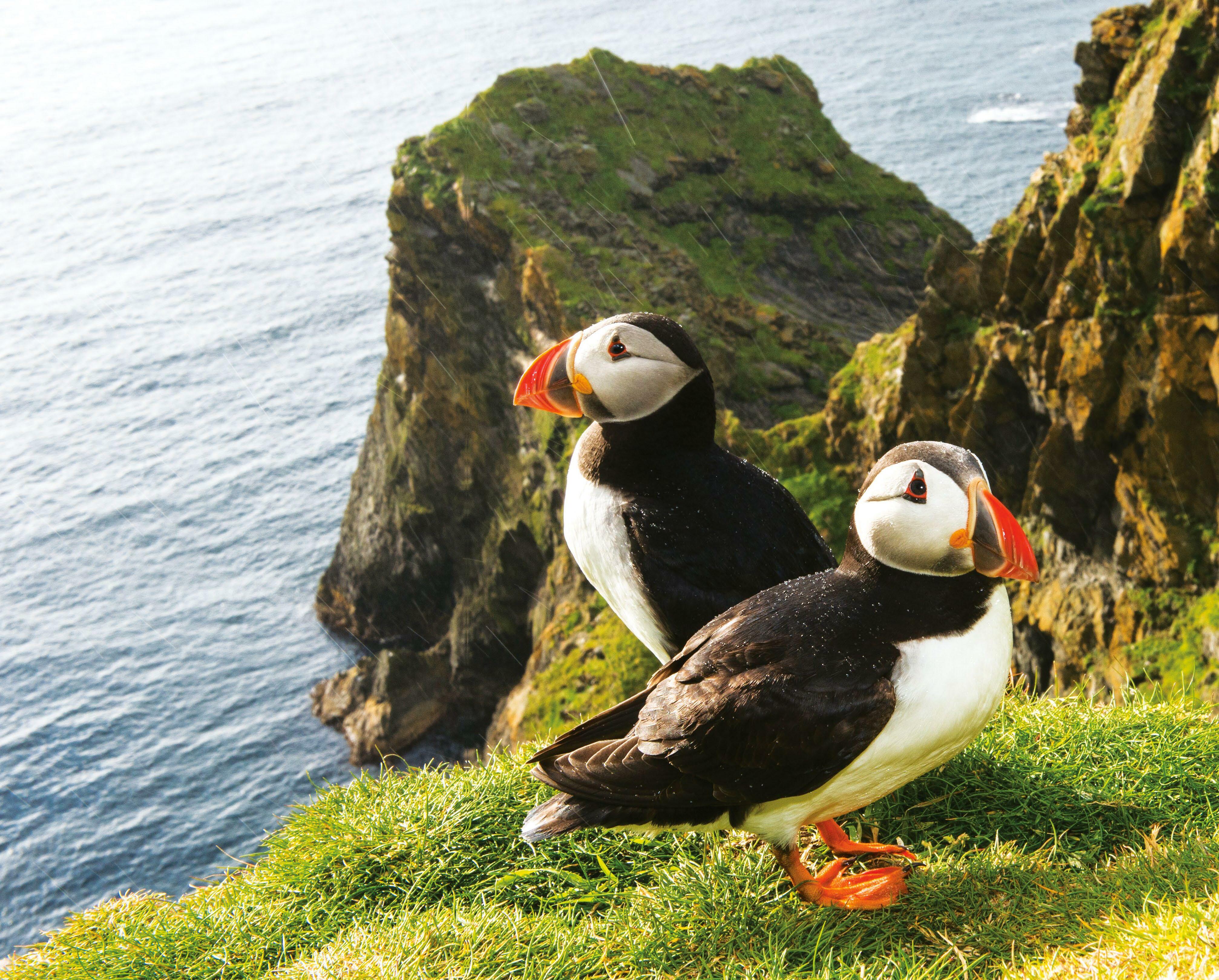
You don’t need to travel to the Serengeti in Africa or the Amazon rainforest in South America to find wildlife adventures. The British Isles are packed with wild treasures to discover. For example, the UK is home to more than 4,000 species of beetle and around 60–70% of the world’s global gannet population. Did you know that Britain has 700 square kilometres of rainforest? That’s enough to fill about 98,000 football fields. They provide handy habitats for wildlife rarely seen in other parts of the country, such as the rare chequered skipper butterfly and hazel gloves fungus found in the rainforests of western Scotland.
The UK’s location makes it globally important, too, with coastal islands and clifftops a main stopover point for millions of migrating birds, offering ideal spots to rest and feed. One of the most popular and recognisable of these is the puffin.
These black-and-white coloured seabirds arrive in their thousands every springtime to breed.
However, you may also have heard that nature has disappeared in the UK more than anywhere else in the world. Over centuries of farming, hunting and other activities, humans have wiped out a lot of Britain’s native wildlife.
The UK’s landscape can no longer support the wide variety of creatures and plants that once lived here. More than one in seven native species face extinction and Britain has lost almost half its biodiversity (the variety of plants and animals living in a particular place). Despite this, the UK is still home to an incredible variety of animals and plants, from basking sharks swimming in the deep to birds of prey flying up high. So come with us on an exciting journey through these wild isles.
この記事は The Week Junior Science+Nature UK の Issue 60 版に掲載されています。
7 日間の Magzter GOLD 無料トライアルを開始して、何千もの厳選されたプレミアム ストーリー、9,000 以上の雑誌や新聞にアクセスしてください。
すでに購読者です ? サインイン
この記事は The Week Junior Science+Nature UK の Issue 60 版に掲載されています。
7 日間の Magzter GOLD 無料トライアルを開始して、何千もの厳選されたプレミアム ストーリー、9,000 以上の雑誌や新聞にアクセスしてください。
すでに購読者です? サインイン

Are cats smarter than dogs?
They're the UK's top pets, but which is more intelligent? You decide!

Could people turn Mars into another Earth?
Sven Bilén explores how humans might make a home on another world.

FUNNY BY NATURE
Claire Karwowski tracks down the wackiest wildlife that's cracking up the animal kingdom.

WEIRD SCIENCE
A round-up of the strangest science stories from around the world.

Guardians of the forest
Meet the incredible people protecting the Amazon rainforest.

The Mariana Trench
Dive in to find out how far down the ocean goes and what it's really like at the bottom.

Megan McCubbin
Meet the zoologist trying to change people's views of animals with a bad rep.

MAX POWER
From the second you wake up in the morning, your way of life is made possible thanks to the amazing power of electricity.

Your heart has a "brain"
New research by scientists at Sweden, and Columbia University, in the US, suggests that your heart could have its own \"mini brain\".

Ethiopian wolves could be furry pollinators
Sweet-toothed Ethiopian wolves have been seen lapping up nectar have been seen happing up nectar from red hot poker flowers.